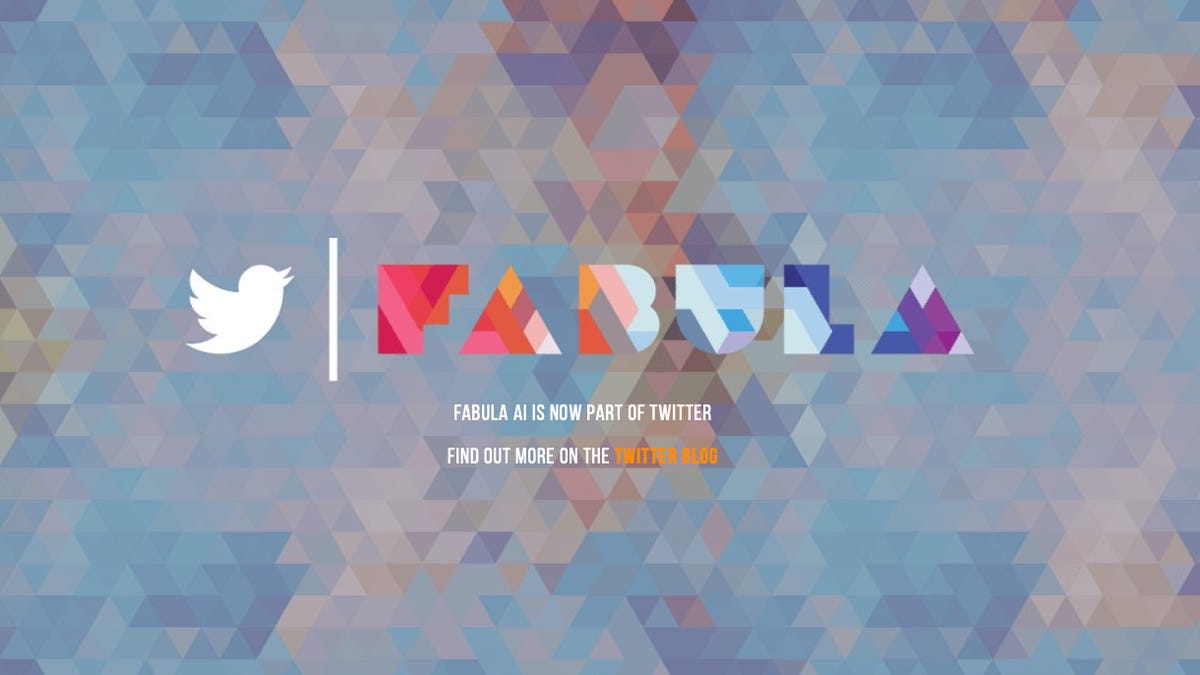Twitter buys startup to detect 'network manipulation'
Fake news will be easier to spot with newly acquired Fabula AI.

Fabula AI has been acquired by Twitter.
Twitter has acquired Fabula AI, a startup focused on machine-learning tech.
The London-based startup says its Geometric Deep Learning technology has high success rates of spotting fake news, as reported earlier by CNET sister site ZDNet.
Twitter said Fabula AI has "a world-class team of machine learning researchers who employ graph deep learning to detect network manipulation."
"The result is the ability to analyze very large and complex datasets describing relations and interactions, and to extract signals in ways that traditional ML techniques are not capable of doing," Twitter CTO Parag Agrawal wrote in a blog post Monday.
Agrawal said Twitter will be better able to "improve the health of the conversation" and "help people feel safe on Twitter."
TechCrunch had previously reported that the Fabula AI system was able to detect fake news 93% of the time.
The acquisition follows Twitter last week cracking down on more fake accounts from Iran alongside Facebook.
Twitter said it pulled down more than 2,800 fake accounts tied to Iran in early May. According to a report released by US cybersecurity firm FireEye, some Twitter accounts were posing as US Republican congressional candidates to push pro-Iranian political messaging.

